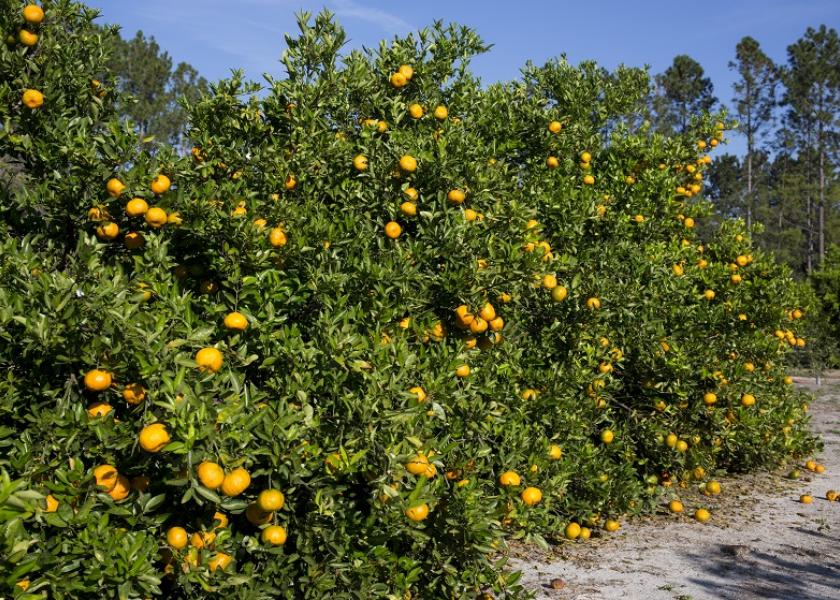Promising advancements in biocontrol treatment that slows citrus greening

Florida citrus growers may have a new tool to help them slow the presence of citrus greening in already diseased trees.
While there is no cure for Huanglongbing (HLB), researchers at the University of Florida Institute of Food and Agricultural Sciences found that injecting a benign Xylella fastidiosa EB92-1 bacteria biocontrol into infected citrus trees over a period of six years reduced the incidence of trees with severe HLB symptoms.
The potential result is providing growers with a strategy to keep trees alive and productive longer even when infected with the citrus greening bacterium.
Donald Hopkins, an emeritus professor of plant pathology at the UF/IFAS Mid-Florida Research and Education Center, conducted three trials in central and eastern Florida with commercial groves of Valencia orange and Rios grapefruit trees at different maturity stages. All of the trees tested positive for citrus greening disease at the beginning of the trial but had varying ranges of symptoms from asymptomatic, mild to severe.
Trees in the trials included young 2-year-old and mature (greater than 20-year-old) trees.
“Using EB92-1 provided a level of control of HLB in two mature citrus tree trials and in a trial initiated in young 2-year-old trees,” said Hopkins.
“This biocontrol strain has the potential to prevent or delay severe symptoms of HLB and prevent the loss of production both in mature and young citrus trees.”
All trees in the trials remained positive for HLB throughout the six-year trial. The injections of EB92-1 did not prevent or reverse infection of HLB. But key findings indicated that trees that were treated had less increase in symptoms than untreated trees. Injected trees also had increased yield than untreated trees. In mature trees, results from the trials indicated that the most effective control of HLB may require once-a-year treatment for at least the first 2-3 years. Retreatment may be required yearly for best biocontrol.
Using EB92-1 especially combined with nutrition, fertilizer and pesticide best management practices could prolong the life and productivity of citrus trees.
Hopkins believes that the biological control of HLB by EB92-1 is not from direct competition with the HLB pathogen since the EB92-1 bacterium operates in a tree’s xylem and the HLB bacterium colonizes the tree’s phloem. Rather the impact in more likely an instance of induced resistance. Induced resistance occurs when a plant’s resistance mechanism is activated by infecting a plant with a pathogen, such as the benign strain EB92-1. In this case, injecting EB92-1 provided some control of HLB in a tree’s tissues not infected with EB92-1 resulting in a slowing of HLB symptoms.
This research was published online in April in Plant Disease, the journal of the American Phytopathological Society (APS) and will soon be in the print version. The project was partially funded by the United States Department of Agriculture HLB Multi-Agency Coordination (MAC) group and UF/IFAS. This treatment is patented and licensed to an external company but is not currently available to growers. The trials continue in central and eastern Florida.







